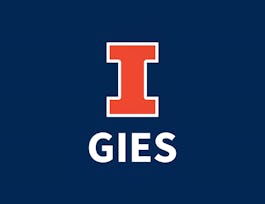This course focuses on examining various practical applications of the fundamental financial analysis and valuation techniques employed in the investment banking industry. Specifically, we will examine how to analyze how a private equity firm or other financial sponsor completes a leveraged buyout of a company, how a public company analyzes the impact of acquiring a company on its earnings per share, and how a company completes an initial public offering.


Investment Banking: M&A and Initial Public Offerings
This course is part of Mergers and Acquisitions Specialization
Taught in English
Some content may not be translated


Instructors: Robert Metzger
5,127 already enrolled
Included with 
Course
(25 reviews)
Details to know

Add to your LinkedIn profile
20 quizzes
Course
(25 reviews)
See how employees at top companies are mastering in-demand skills

Build your subject-matter expertise
- Learn new concepts from industry experts
- Gain a foundational understanding of a subject or tool
- Develop job-relevant skills with hands-on projects
- Earn a shareable career certificate


Earn a career certificate
Add this credential to your LinkedIn profile, resume, or CV
Share it on social media and in your performance review

There are 5 modules in this course
This module begins with describing the different types of M&A projects and roles investment banks play in them. It then moves on to the motivations and strategies which drive M&A transactions, the different approaches to selling a business, and the process steps to running a sell-side auction process. Finally, the module explores how buyers finance, structure, and analyze M&A transactions.
What's included
19 videos6 readings6 quizzes1 discussion prompt
Most of the M&A deals that take place in today’s market are completed by private equity firms. The vast majority of these transactions are classified as “leveraged buyouts (LBOs)”, as the consideration is a mix of equity and debt (leverage). This module will explore how a private equity firm determines the price that it can pay for a specific target company in an LBO transaction given an assumed return threshold, financial forecast and capital structure.
What's included
2 videos2 readings3 quizzes
When a corporation acquires a business, in addition to assessing the target’s standalone valuation, it will also assess whether the completion of the transaction will have a positive impact on its prospective earnings per share (EPS). This module will explore how an acquirer analyzes whether the acquisition has an accretive (positive) or dilutive (negative) impact on its EPS, given assumptions of the target’s valuation, expected transaction synergies, a proposed financing structure, and the impact of both financial and accounting transaction adjustments. This module will also demonstrate how to prepare a pro forma balance sheet for the buyer given the specifics of the M&A transaction.
What's included
5 videos2 readings6 quizzes
Owners of businesses sometimes decide to take their business public as an alternative to an outright sale. This model explores the similarities between selling and an IPO as well as the differences. This module will define commonly used IPO terms and discuss the IPO process on a stage by stage basis. Finally, this module will highlight the key IPO valuation considerations and end with discussing what happens after a company is public.
What's included
11 videos3 readings5 quizzes1 peer review
Instructors


Recommended if you're interested in Finance

University of Illinois at Urbana-Champaign

University of Illinois at Urbana-Champaign

University of Illinois at Urbana-Champaign

University of Illinois at Urbana-Champaign
Get a head start on your degree
This course is part of the following degree programs offered by University of Illinois at Urbana-Champaign. If you are admitted and enroll, your coursework can count toward your degree learning and your progress can transfer with you.
Why people choose Coursera for their career




Learner reviews
Showing 3 of 25
25 reviews
- 5 stars
84%
- 4 stars
4%
- 3 stars
8%
- 2 stars
4%
- 1 star
0%
Reviewed on Sep 12, 2022
New to Finance? Start here.

Open new doors with Coursera Plus
Unlimited access to 7,000+ world-class courses, hands-on projects, and job-ready certificate programs - all included in your subscription
Advance your career with an online degree
Earn a degree from world-class universities - 100% online
Join over 3,400 global companies that choose Coursera for Business
Upskill your employees to excel in the digital economy
Frequently asked questions
Access to lectures and assignments depends on your type of enrollment. If you take a course in audit mode, you will be able to see most course materials for free. To access graded assignments and to earn a Certificate, you will need to purchase the Certificate experience, during or after your audit. If you don't see the audit option:
The course may not offer an audit option. You can try a Free Trial instead, or apply for Financial Aid.
The course may offer 'Full Course, No Certificate' instead. This option lets you see all course materials, submit required assessments, and get a final grade. This also means that you will not be able to purchase a Certificate experience.
When you enroll in the course, you get access to all of the courses in the Specialization, and you earn a certificate when you complete the work. Your electronic Certificate will be added to your Accomplishments page - from there, you can print your Certificate or add it to your LinkedIn profile. If you only want to read and view the course content, you can audit the course for free.
If you subscribed, you get a 7-day free trial during which you can cancel at no penalty. After that, we don’t give refunds, but you can cancel your subscription at any time. See our full refund policy.

